
All categories
Featured selections
Trade Assurance
Buyer Central
Help Center
Get the app
Become a supplier

(2905 products available)






















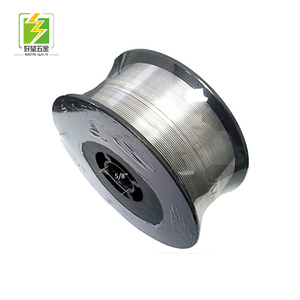



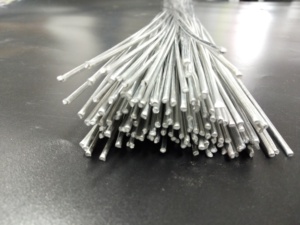




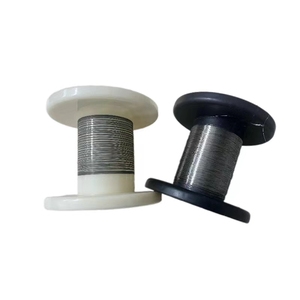





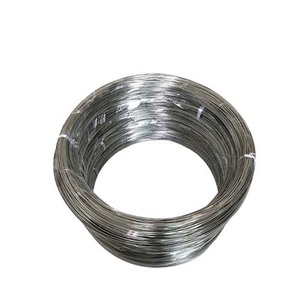


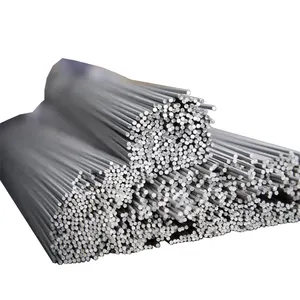

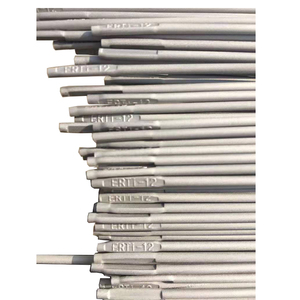



The main reason for the diversity of titanium welding wire is the need for compatibility with various grades of titanium and other metals that are going to be welded. In practice, titanium welding wires come in different forms, mainly in terms of wire diameters, grades, and alloy compositions.
This wire type is made from minimally processed titanium and is used in applications that require resistance to corrosion and a high strength-to-weight ratio. The welding wire usually finds applications in aerospace components and medical implants.
Grade 2 titanium wire contains a low percentage of oxygen and is highly workable. Such characteristics make them very suitable for applications that require high corrosion resistance. Common applications normally include chemical processing and marine components.
These are wires made from a mixture of titanium and alloying elements like aluminum, vanadium, and iron. The alloy wires are utilized to improve mechanical properties such as strength and hardness. Quite commonly used in aerospace applications where materials need to be very lightweight but still carry heavy loads.
This wire is in Grades 1-4, which is pure titanium with different oxygen contents. They are used for welding non-alloyed titanium and are ideal for chemical processing, marine, and medical applications.
This type of wire is specifically designed for welding together different types of metals, especially titanium and stainless steel. It is commonly used in industries like oil and gas, power generation, and aerospace, where structures often need to withstand extreme conditions.
The price of titanium welding wire normally varies due to the material composition, type, quality, and market demand. In recent years, titanium and metal alloys in general have been in high demand by industries seeking lightweight yet strong materials. This has been a driving factor to the popularity of titanium welding wire. Apart from this, other factors that affect the prices of titanium welding wire include:
Titanium welding wire applies to industries where strength, corrosion resistance, and weight are deliberately pointed out. It is highly used in the following sections:
Titanium is preferred for its low density and ability to withstand extreme temperatures. Usually, the welding wire is used to join engine components, airframes, and landing gear. These make the structures lighter yet very strong to carry the loads they are needed to carry.
Titanium has a unique property of being bio-compatible, which means it can easily be used in the human body without causing any undesired effect. That is why it has been used to make hip and knee implants, dental implants, and medical devices such as pacemakers. All these items normally utilize titanium welding wire for effective manufacturing.
Since titanium can resist corrosion even in a very saline environment, it makes it ideal for ships, submarines, and offshore oil rigs. In these sectors, welding wire is used to improve the long life of structures and components.
In this sector, titanium wiring is used for exhaust systems and other structural components. In race car applications, every extra pound saved can make a difference in performance; thus, the titanium welding wiring comes in handy.
Just like in other areas where titanium wiring is used, in defense, it applies to body armor, vehicle components, and aircraft parts. The wire must be strong enough to handle the severe welding conditions it is exposed to in the defense industry.
Titanium welding wire is used in chemical processing, oil and gas pipelines, and pressure vessels due to its resistance to corrosion and ability to withstand high temperatures. This wire ensures that the materials used can efficiently and effectively do their job without being corroded.
Following the right strategy ensures that buyers get the best and the most suitable titanium welding materials. In this case, the wire's titanium grade, diameter, and alloy composition are some of the important factors that will be considered when selecting the welding wire.
A. The titanium welding wires are specifically created to have more strength and corrosion resistance than the ordinary welding wires. They are more commonly used in extreme environments, like aerospace and marine applications, and medical devices where the weld integrity is crucial.
A. The titanium welding wires are commonly used in auto racing, medical implants, and marine, aerospace, defense, and chemical processing industries. It is in this place that the need for extremely durable and corrosion-resistant materials evokes the use of titanium alloy wires.
A. The diameter of titanium welding wire plays a critical role in the end product's quality. A thinner wire allows more control over the weld pool and is ideal for thinner material. At the same time, a thicker wire is great for thicker materials since it provides stronger welds. Which required depends on the thickness of the materials to be joined and the type of welding method used. For instance, MIG works better with a thicker diameter, while smaller gauges are meant for TIG welding.
A. Yes, there are special types of titanium welding wires that are designed precisely for dissimilar metal welding. These wires typically consist of titanium alloy and are meant to bridge the properties of both metals. This results in a strong joint that is capable of withstanding the demands of extreme environments.
A. Titanium welding wires have to be manufactured under strict quality control processes. These are because they are primarily used in critical environments. They are normally subjected to tests and certified to meet national and international welding standards. Such certification variously depends on the intended application, whether aerospace, medical, or chemical processing. After certification, they are distributed with quality records. In these records, there is quality information that a particular batch of wire meets the required strength and purity standards.